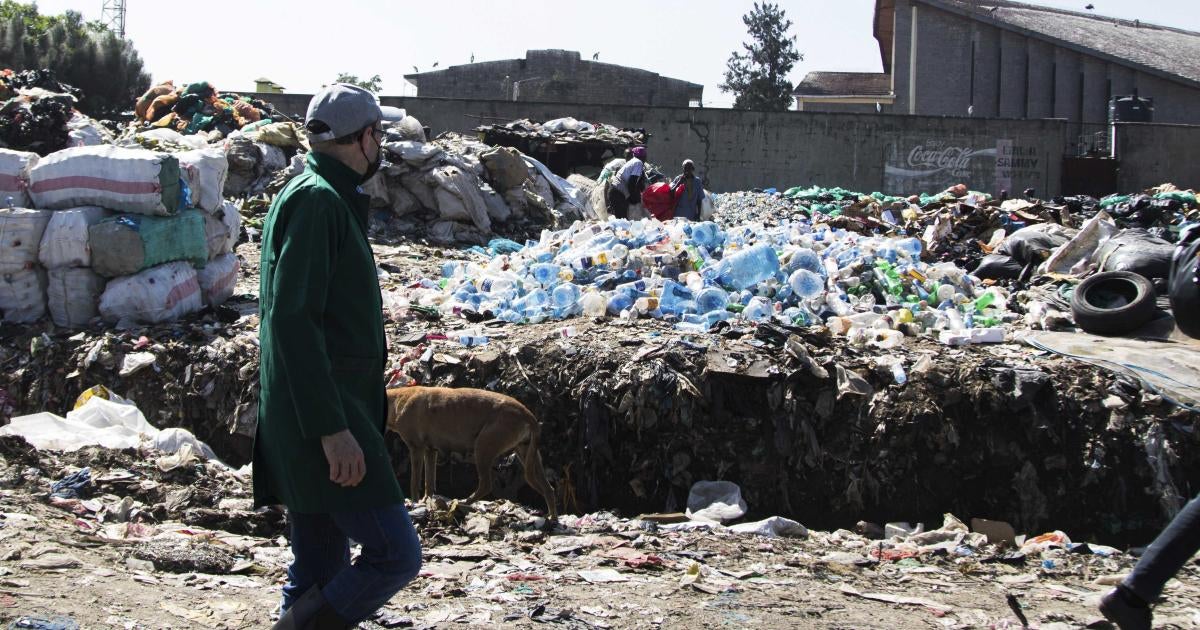Global Plastics Treaty: A Historic Opportunity to Protect Human Rights
Today, parties to the United Nations Environment Assembly agreed to establish a committee to draft a treaty addressing the global plastics crisis.

This is a historic commitment by countries to work together to finally tackle the environmental and human costs of plastics. While often framed as a strictly environmental pollution issue, plastics have significant impacts on human rights throughout their lifecycle. Fossil fuels are a major component of plastics, and the oil and gas used to produce plastics emit large quantities of greenhouse gases, which are contributing to the climate crisis.
The UN Food and Agricultural Association warns that microplastics, or plastic particles smaller than five millimeters, leach into the environment when plastic breaks down and pollute agricultural soils, threatening communities’ food security, drinking water and health. Plastic waste is also either burned or accumulates in landfills, dumps, or the surrounding environment, while only 9 percent of plastic ever produced has been recycled. People who live near dumping and burning sites face health risks from toxic chemicals as plastics degrade or are burned. Exposure to toxins in plastics can lead to long-term and lifelong health outcomes, particularly for recycling facility workers and waste pickers. Plastic can take centuries to break down, so plastic consumed and disposed of today may cause harm for generations. At the same time, plastic production and disposal are projected to triple by 2060, unless action is taken to limit plastic use.
The agreed mandate paves the way for countries to establish a legally binding instrument that addresses the environmental and human rights impacts of plastics throughout their lifecycle, from production to disposal. Notably, the text recognizes the significant contributions of waste pickers and workers in the informal economy, who are often excluded from decision-making processes, lack government support, and are vulnerable to occupational health risks.
The world is drowning in plastic and the creation of this mandate recognizes the urgency of addressing the problem. As negotiations progress towards a global plastics treaty in the coming years, states should ensure that solutions address the many impacts of plastics throughout their lifecycle in a way that protects human rights.
Read the full article at the original website
References:
- https://www.unep.org/environmentassembly/
- https://www.unep.org/news-and-stories/news/unea5-unep50-updates#update168785
- https://undocs.org/A/76/207
- https://www.hrw.org/topic/climate-change
- https://www.fao.org/publications/card/en/c/CB7856EN
- https://www.unep.org/interactives/beat-plastic-pollution/
- https://www.hrw.org/news/2022/01/21/new-study-underscores-dangerous-levels-chemical-pollution
- https://www.sciencedirect.com/science/article/pii/S0160412015000082?via%3Dihub
- https://www.ncbi.nlm.nih.gov/pmc/articles/PMC6147112/
- https://www.nature.com/articles/s41599-018-0212-7
- https://www.unep.org/environmentassembly/unea-5.2/outcomes-resumed-session-unea-5-unea-5.2
